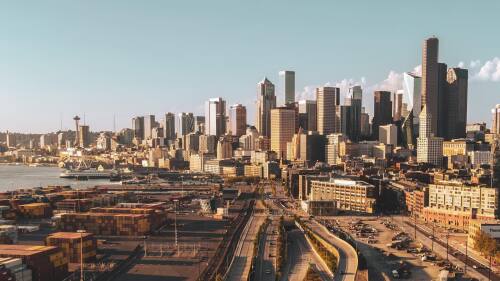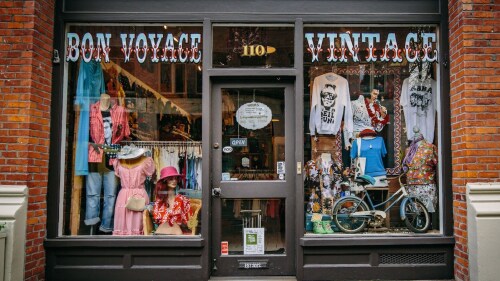Ready to begin composting? We’ve got the dirt on how to get started, plus the best compost bin for your needs.
What is composting?
Composting is the process of decomposing organic matter — like leaves, food scraps, and yard trimmings. You reap what you sow: The result is a dark, nutrient-heavy material, like soil, that you can use to enrich your lawn or garden.
How do you get started?
Find a dry and shady spot in your backyard to build your compost pile. Be patient — composting can take several months.
If you don’t want a pile of decomposing waste in your backyard, try a compost bin. Here’s some options we’ve bin eyeing:
- For beginners | Try it out before you commit. This bin is easy to clean and is perfect for collecting scraps on your counter.
- For style icons | Composting, but make it cute. Just don’t mistake this odor-free bin for your cookie jar.
- For the serious gardener | This 43-gallon container rotates — no more mixing compost by hand — and has two chambers so you can add fresh waste while the older batch finishes up.
- For the landscaper | If you plan to compost mostly yard waste, this open-top bin is a good alternative to a pile.
Can you compost without a backyard?
If you’re an apartment-dweller or simply don’t have the backyard space, you might want to give worm composting a try. Simply purchase a special bin and some worms, and let your new squirmy pets feast on your scraps.
What can you compost?
Compost should be a blend of waste containing nitrogen (green waste) and carbon (brown waste) like:
✅ Green: fruits, vegetables, bread, coffee grounds, grass clippings, tea, and hair
✅ Brown: dryer lint, egg shells, nut shells, sawdust, hay, leaves, shredded paper, and cardboard
While all of these materials will decay eventually, mixing green and brown waste together will likely speed up the process — especially if you experiment and find the right carbon to nitrogen ratio.
What can’t you compost?
Not everything decomposes well. Be sure to avoid composting stuff like:
❌ Inorganic materials: metal, plastic, produce stickers, treated wood
❌ Animal products: dairy, meat, bones, pet feces
How do you use compost?
Composting is good for the soul… and the soil. Make it into mulch, mix it into your flower and vegetable beds, or spread it over your lawn.
No garden? No problem. Mix some of that compost into your potting soil to give indoor plants a boost.











